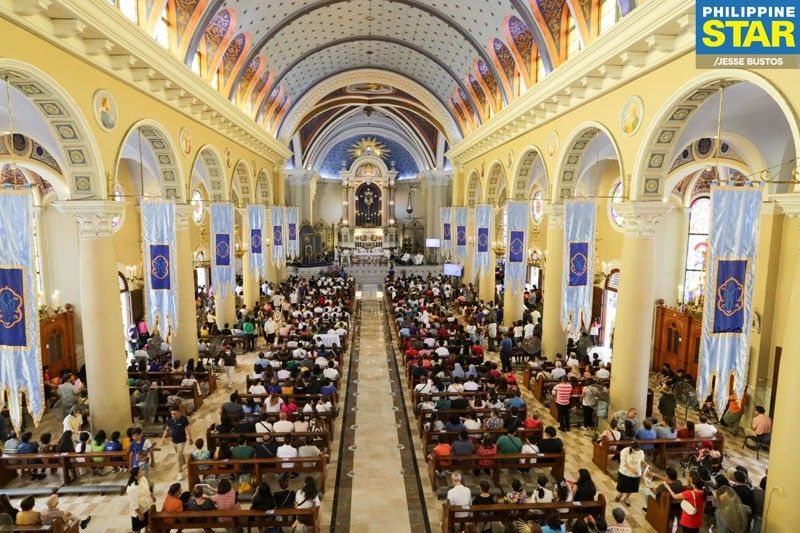President Marcos to Pinoys: Share blessings with poor, marginalized

MANILA, Philippines — President Marcos urged the Filipino faithful yesterday to draw inspiration from the Immaculate Conception in fortifying their Christian faith, by sharing their blessings to the poor and marginalized.
“During these challenging times for our country, let us draw inspiration from the narrative of the Immaculate Conception as we overcome our limitations and draw on our strengths to see the world with grateful hearts and explore the deep meaning of our purpose in life,” Marcos said in his message for the Feast of the Immaculate Conception of Mary.
“May this auspicious occasion allow us to fortify our Christian faith and inspire our fellow faithful to share our blessings to the poor and marginalized as a way of perpetuating peace, generosity and kindness around us,” he said.
The President also asked the nation to fervently pray for the Lord’s continued guidance and the intercession of the Blessed Virgin Mary as the people join hands to build the Bagong Pilipinas that Filipinos aspire for.
Bagong Pilipinas is Marcos’ brand of governance launched in July.
Marcos remained in isolation as of yesterday after testing positive for COVID-19 on Monday night. This is the third time he contracted the disease.
The feast of the Immaculate Conception is a celebration by the Catholic community of Mary’s conception without sin.
Even though the feast day occurs in the liturgical season of Advent, which prepares for the birth of Our Lord Jesus Christ, the Immaculate Conception refers to the conception of Mary in the womb of her mother, St. Anne.
The observance of the feast began with a papal encyclical by Pope Pius IX when he formally defined the dogma of the Immaculate Conception, Ineffabilis Deus, on Dec. 8, 1854.
In 2017, former president Rodrigo Duterte signed Republic Act 10966 declaring Dec. 8 a special non-working holiday in the entire country to commemorate the Feast of the Immaculate Conception.
The Philippines is one of the predominantly Catholic countries in the world.
There are approximately 76 million Catholics in the Philippines or about 81 percent of citizens, according to the Catholic World Mission’s website.
Embody Mary’s virtues
Meanwhile, Manila Archbishop Jose Cardinal Advincula called on Filipino Catholics to live by the virtues of the Virgin Mary, traditionally believed to be born without original sin.
In his homily during the Feast of the Immaculate Conception at the Manila Cathedral, he described Mary as a “woman marked by bearing God’s presence, enduring in hope, trusting in God’s providence and modeling honesty and humility.”
“Like our Immaculate Mother, may we also imbibe and practice these virtues,” Advincula said.
He also reflected on the significance of the tree branches – palm, olive, plane and cypress trees – etched on the capital pillars that house the statue of the Immaculate Conception at the altar of the 800-seat cathedral.
Advincula said Mary possessed the traits of the following trees: cypress signifying Mary’s strength to carry God through her son Jesus; palm to mean Mary as a symbol of hope, like the tree, bringing hope to thirsty and weary travelers in a desert; olive as a symbol of “God’s providence to the chosen ones” like Mary and the plane tree to signify Mary’s humble acceptance of God’s will despite her initial doubts after being told she would bear a child, a Son of God.
Mass goers were allowed to honor the Immaculate Conception by going up the altar and praying to the image.
The mass was concelebrated by Papal Nuncio Archbishop Charles Brown and around 20 priests and bishops.
The Manila Cathedral was dedicated to the Immaculate Conception, also the patroness of the Philippines, through a declaration by Pope Gregory XIII in 1581. — Ghio Ong
- Latest
- Trending





























